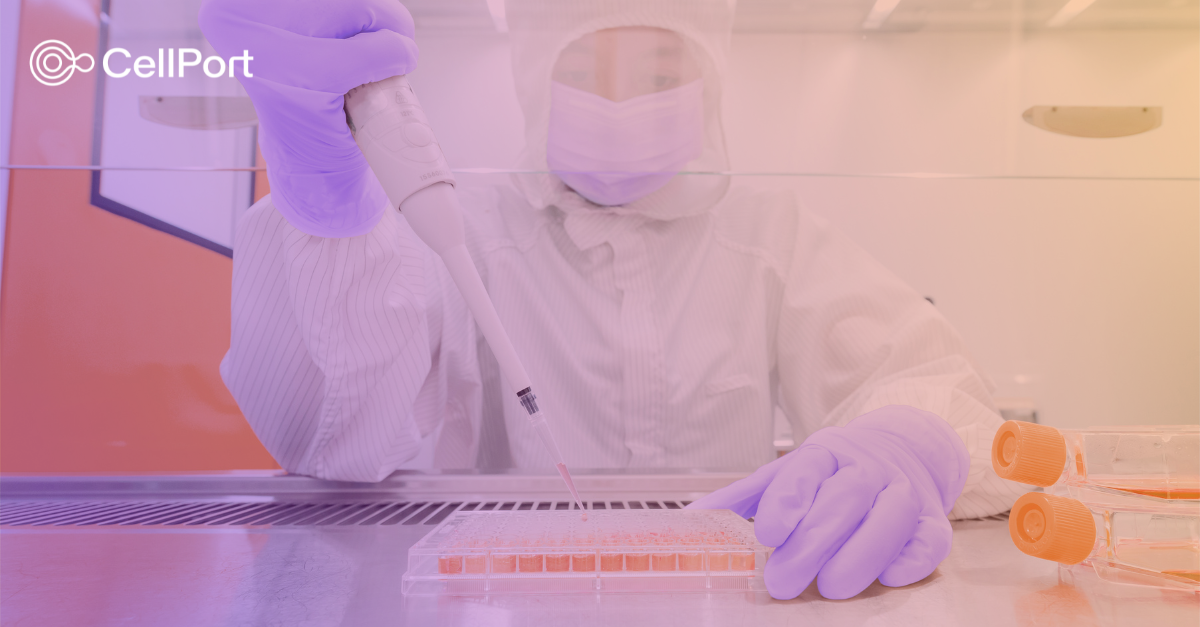Meeting the Demands of Innovation
Deliver a high-quality, reproducible product with fully optimized & automated upstream and downstream operations.

How CellPort Supports Biotechnology
From marine to medical, environmental to industrial, agricultural to food, CellPort empowers biotechnology labs with automated, streamlined processes, such as:
Development

Technology

Medicine & CGTs


Records (MBRs)
& Storage

Why Scientists Love CellPort
Watch this guided walkthrough to learn how CellPort streamlines cellular processes for biopharmaceutical labs.






CellPort Learning Hub
Browse our latest resources to learn more about how CellPort streamlines life sciences.
Products Videos
View all VideosLatest Blogs
View all Blogs.png)

CellPort delivers far more than a traditional Electronic Laboratory Notebook (ELN), combining intuitive design with deep, cell-centric functionality.
...Read more

Cell culture involves many detailed steps that require precision and careful tracking. Digital tools, like barcode labels and centralized software, simplify these processes by providing real-time visibility, reducing manual workload, and supporting accurate, efficient workflows. Embracing digitalization is essential for advancing biopharma research with confidence and compliance.
...Read more.png)

Discover how CellPort enhances operations by improving efficiency, data management, and compliance. Learn how our platform supports teams in optimizing workflows and driving success across all stages of development.
...Read more

CellPort optimizes cell culture management, reducing errors and improving efficiency. Track media, schedule tasks, and access cell history in real-time with barcode scanning and custom reporting.
...Read moreWhite Papers
Leadership Videos
View all VideosCellPort Features
Built by our scientists, for your scientists – Here’s how CellPort helps optimize cell culture and passaging.
Digital Protocols
Choose from a library of pre-built or custom digital workflows and assays.
Learn MoreMaster Batch Records
Streamline cell manufacturing in a safe and compliant lab environment.
Collaboration
Keep offline communication online for better transparency, traceability, and training.
Learn MoreCustomized Reporting
Monitor the status of your lab with real-time reporting and data analysis.
Secure Cloud
CellPort is built on the cloud platform trusted by 95%of Fortune 500 companies, designed from the ground up to keep your data safe.
Explore More Industries
Biopharmaceutical
Facilitate more reproducible, GMP-complaint drug discovery & pharmaceutical manufacturing processes.
Learn MoreCRO & CDMO
Standardize reporting & SOP compliance with a full suite of tools designed for contract labs.
Learn MoreCellular Agriculture
Harvest a more plentiful cell culture with a reliable, consistent supply of cells.
Learn MoreAcademia, Teaching and Research
Train and upskill the next generation of scientists and lab technicians.
Learn More












.webp)




.webp)

















